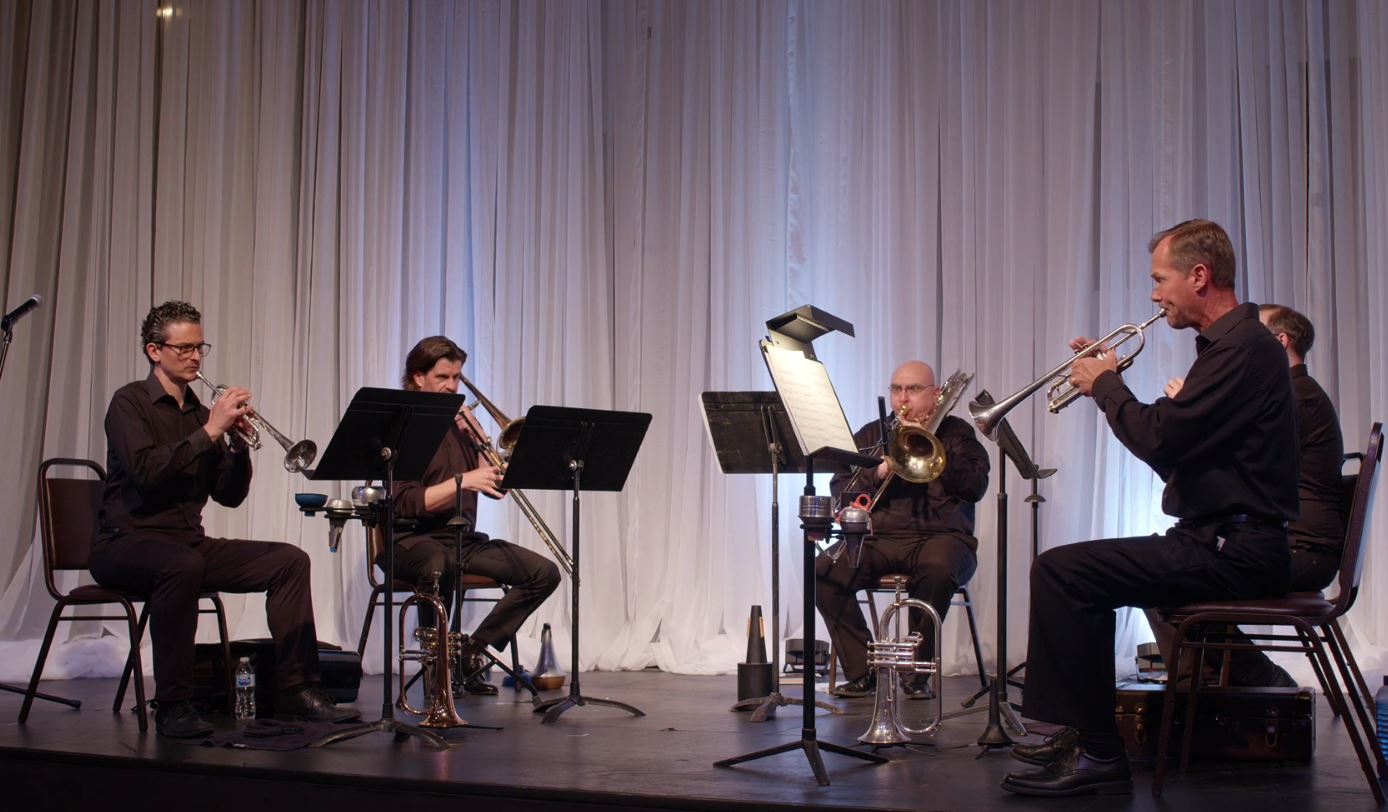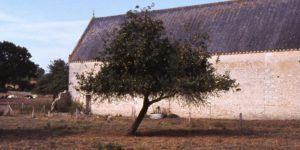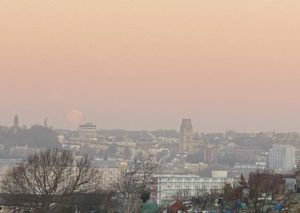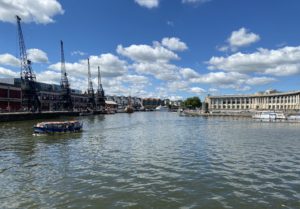
If you’re a fan of a particular composer it is very likely that when you tune in to a performance you will usually get introduced to other pieces you may not know. Such was the case a few nights ago when I logged on to watch the online Americana concert by Third Coast Brass. Works performed included giants of American music including Charles Ives, George Gershwin, Duke Ellington, Bernard Herrmann as well as Copland.
The brass quintet is part of the Chamber Music on the Fox initiative based in Illinois. The concert kicked off with Ives’ Variations on America. I have always considered that his piece must be a joke. Surely, it should be called Variations on Britannica as the theme is that of our national anthem God Save the Queen? I have two recordings of this. One of the organ original and one of the orchestrated version arranged by William Schuman. I consulted the liner notes of these two CDs to find out more. Interestingly neither mentioned anything about the British connection of this music. Nor did bass trombonist Mark Fry when he spoke about Ives after the piece concluded. I was puzzled. I wondered if this had some sort of reference to the War of Independence and was Ives thumbing his nose at the old masters across the Atlantic? However Wikipedia came to the rescue. Apparently, the piece in question is derived from the patriotic hymn America (My Country, ‘Tis of Thee) which was the de facto national anthem of the USA until it was superseded by the Star Spangled Banner in 1931. Also, new to me and somewhat incredibly is the fact that the tune was also used at various points as the national anthem of Germany and Russia and continues until this day as the national anthem of Liechtenstein! Well you learn something new every day! I guess Americans don’t hear God Save the Queen that much these days but for me listening to your own national anthem, however varied is not exactly my idea of fun!
Between works by the different composers each member of the quintet took turns to introduce the next work. I like this sort of thing and wish that more ensembles, conductors and solo instrumentalists would do it as it adds an extra dimension to the performance and provides a piece with a context. Sure, information like this is often in the programme but this way it breaks up the concert and provides more connection with the players.
The Ives was followed by Portrait of Hitch by Bernard Herrmann. This was a transcription by Mark Fry of pieces of the Hermann scored soundtrack to the Alfred Hitchcock film The Trouble with Harry. I had no idea that Herrmann was so influenced and inspired and indeed a great Champion of Ives but it’s all there – the confluence of several bands to produce a cacophony of noise and bits that are purposefully slightly out of tune. Without Fry’s introduction I might not have noticed. It was my highlight of the evening and a piece I’ll be listening to again.
I’m currently reading the Humphrey Burton biography of Leonard Bernstein so it was interesting to hear his Dance Suite for Brass Quintet from 1989, his last composition. In the book I have just got to the part in the 1940s where Bernstein has a crisis of confidence with his own compositions. All his mentors (Serge Koussevistisky, Dimitri Mitropoulis and Copland) to some extent damned his compositions with faint praise and encouraged him to stay on his stellar career path as a conductor.
Bernstein often composed small pieces as gifts for friends and people that inspired him. The dance suite was dedicated to choreographers Antony Tudor, Agnes de Mille, Mikhail Baryshnikov, George Balanchine and Jerome Robbins. It is really a slight work. For me the most notable bit for was the Two Step which was a tribute to George Balanchine. I was intrigued by the fact that the fifth piece dedicated to Jerome Robbins was written when Leonard Bernstein was watching MTV and Miami Vice!
The Copland pieces came after the intermission. I really enjoyed Sunday Traffic from The City. Until you watch this piece being performed you just don’t realise just how taxing it is for the bass trombonist who plays the continuous bass line for the full three minutes. I was left thinking that Mark Fry’s lips might end up with repetitive strain injury!
Much less successful were the renditions of Bride’s Solo from Appalachian Spring and The Promise of Living from The Tender Land. Unfortunately, for brass players, I think of all the musical instruments theirs are the most easy for casual listeners to hear when a bum note is played. The Appalachian Spring in particular came across as under rehearsed and on this occasion the quintet simply did not gel together. I don’t think this is the fault of the players as there is so much colour in the original ballet version for 13 instruments and the later orchestrated suite. In truth I just don’t think this music works at all well for a pure brass ensemble.
By contrast Cotton Tail by Duke Ellington and the Porgy and Bess suite by Gershwin which ended both halves of the concert are perfect material for this instrumentation. It’s so much easier for the musicians to be going with the natural rhythm and verve of the music rather than against the grain. As a result they made these pieces sound easy and as if they have played them a hundred times before whereas the more bucolic Copland pieces sounded forced.
So all in all a really enjoyable concert that got me thinking, filled in some knowledge gaps and introduced me to some new Americana.






Leave a Comment